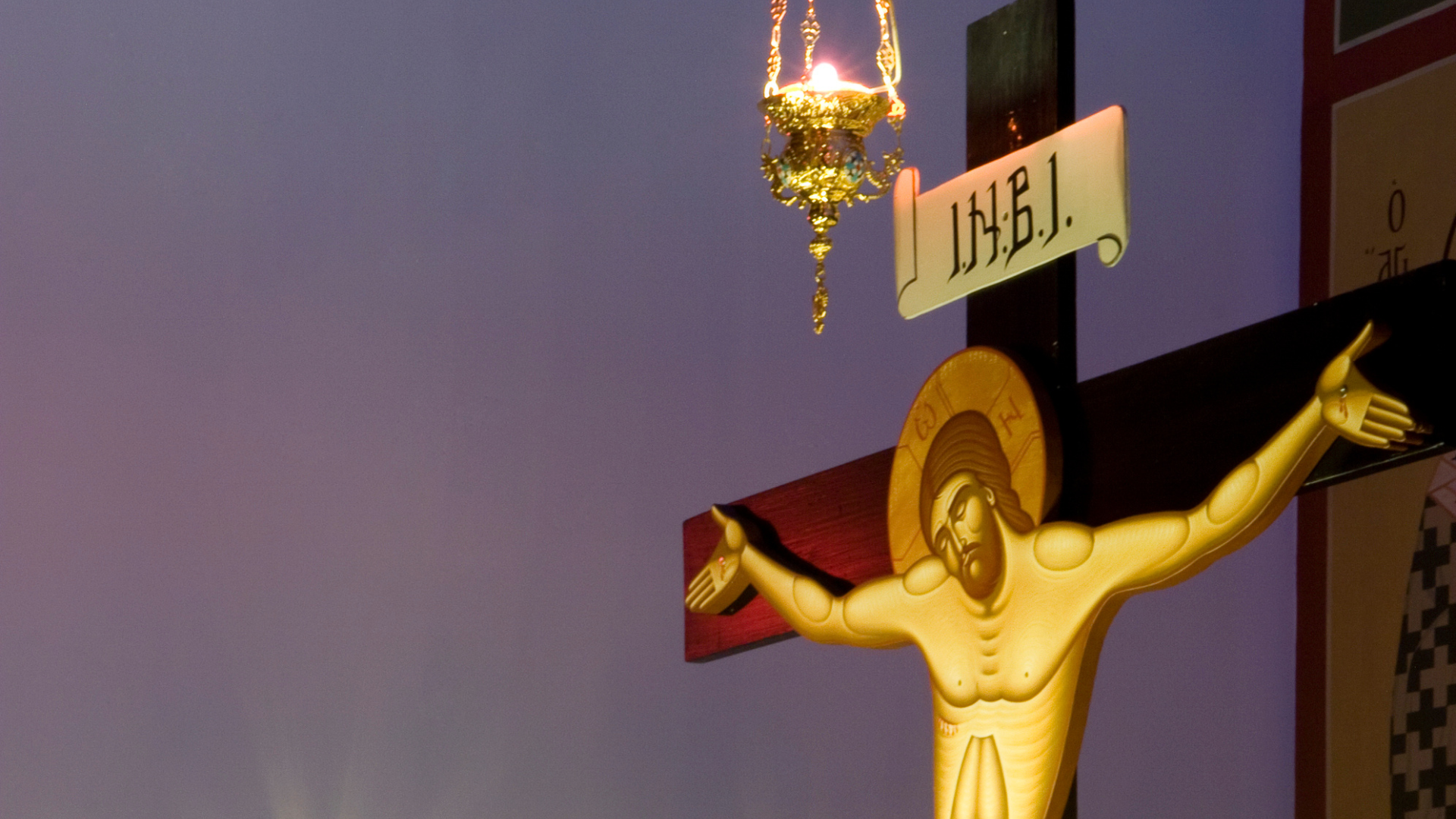It’s that time of the year again, where the 40-day fast has commenced, the kitchen is filled with aromas of fresh tsourekia and homemade koulourakia being baked, and mums and yiayiathes are buying eggs in bulk to prepare for the dyeing of the red eggs.
As many of us know, Easter is one of the most significant celebrations of the year, with Holy Week highlighting major events in the lead up to Christ’s resurrection.
What many of you might not know is what goes on during each day of Holy Week, so The Greek Herald is here to give you a timeline of events.
Saturday of Lazarus
The day before Palm Sunday is known as the ‘Saturday of Lazarus.’ This special day in the Orthodox faith commemorates the resurrection of Lazarus by Jesus Christ. It also marks the beginning of Holy Week. As mentioned in the Book of John, Lazarus had been dead for four days before Jesus miraculously restored him to life (John 11:38-43). Typically, on Lazarus Saturday, churches conduct a Matins Service, akin to the morning church service, followed by the Divine Liturgy. People also make and eat traditional Lenten Greek Easter beads called Lazarakia.
Palm Sunday
The Sunday before Easter is known as Palm Sunday. It marks Jesus’ arrival in Jerusalem, where he was hailed as the King by the people. This significant event is written in the bible under Matthew 21, Mark 16, Luke 19, and John 12. Following his triumphant entry to Jerusalem, Jesus was aware of his impending death, and it was documented in John 12. As Palm Sunday falls on the Sunday before Easter, a regular Divine Liturgy takes place, along with additional elements to reflect Jesus’ entry into Jerusalem.
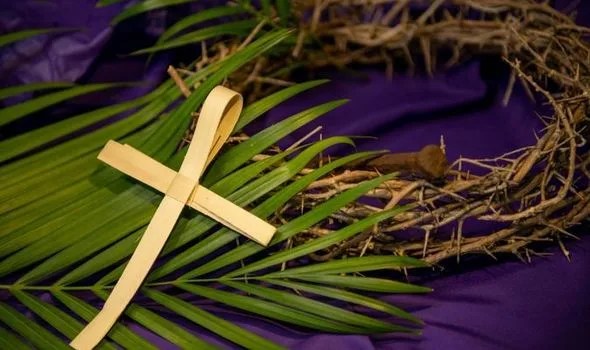
Holy Monday
Holy Monday is the third day of Holy Week, and it is pivotal in preparing for Christ’s crucifixion and resurrection later in the week. It commemorates Joseph the Patriarch, son of Jacob, and reflects on Jesus’ act of cursing the fig tree during his triumphant entry into Jerusalem. On Holy Monday, an Orthos Service takes place.
Holy Tuesday
On Holy Tuesday, most churches hold a Matins service to prepare parishioners for the events of Holy Wednesday. This service features special hymns, such as the poignant “Hymn of Cassiane,” with some churches even involving their choirs in the singing. It is typically conducted in the evening, and this service sets the tone as preparations continue for Holy Week.
Holy Wednesday
Holy Wednesday typically consists of two church services – one in the morning and one in the evening. The morning service, which features the Liturgy of the Presanctified Gifts, allows for Holy Communion. In the evening, the service consists of offering parishioners the holy oil, which commemorates the anointing of Christ’s feet with myrrh as described in Luke 7.
Holy Thursday
Holy Thursday is symbolic in the church as it marks the Last Supper, as well as the night Jesus Christ was nailed to the Cross. On this day, two services are held, one in the morning and one in the evening.
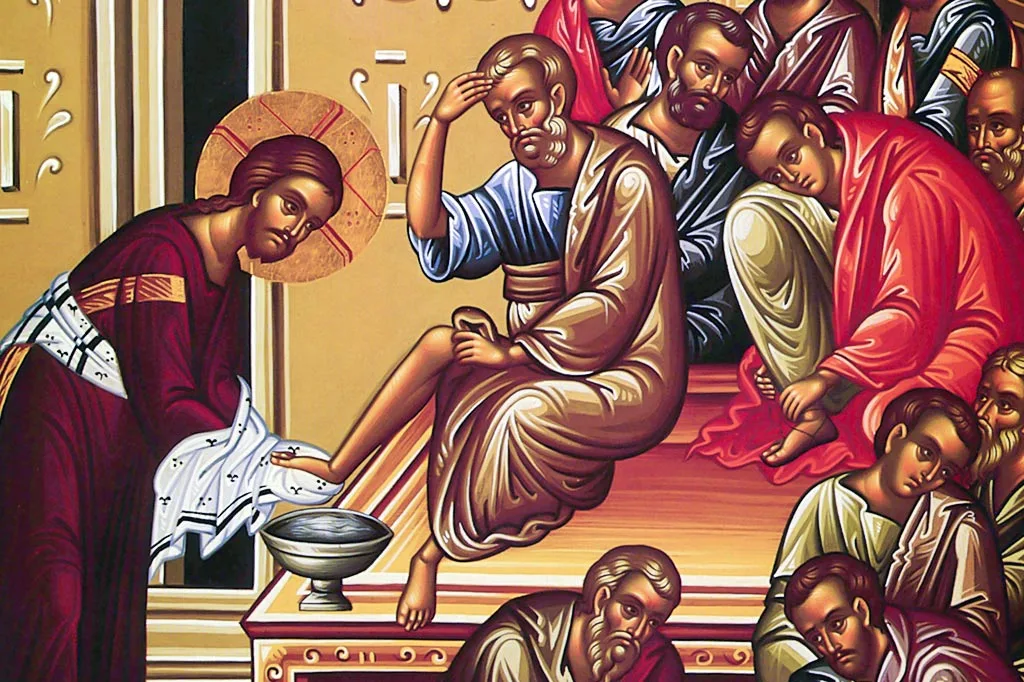
According to the Bible, various events take place on this day, including Jesus washing his disciples’ feet, the Last Supper with the Sacrament of the Holy Eucharist, and Jesus’ agony in the garden of Gethsemane alongside Judas’ betrayal.
Women traditionally dye the eggs red on this day, to symbolise Jesus’ blood. The eggs are symbolic of new life too.
Good Friday
On Good Friday, Orthodox Christians remember Jesus’s crucifixion. The church service symbolises Jesus laying in the tomb (Epitafio) after being taken down from the cross. An evening service takes place which involves mourning, reading Bible passages and singing hymns.
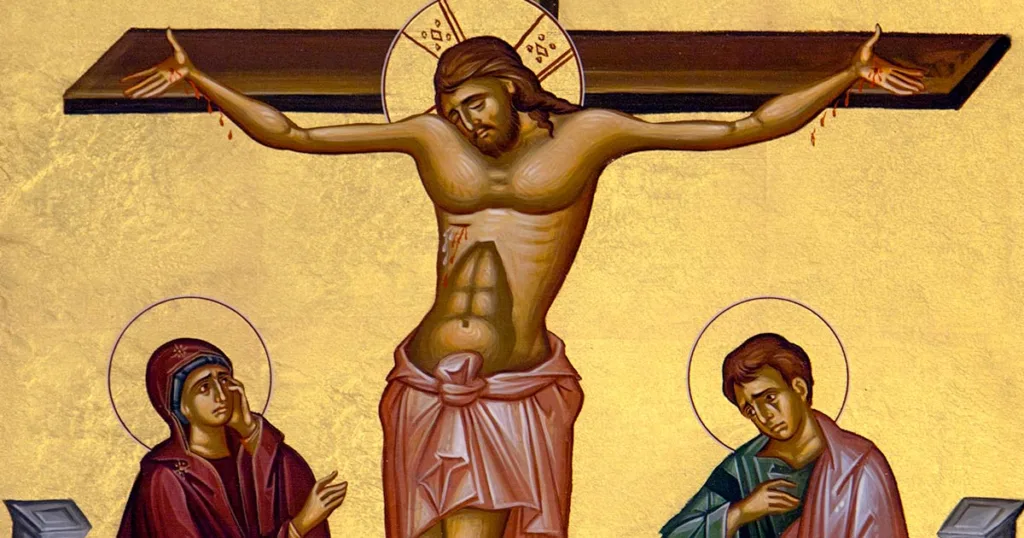
Holy Saturday
Parishioners also witness and partake in a procession of the Epitafio around the church. During the procession, flower girls may also scatter rose petals on Jesus’s body.
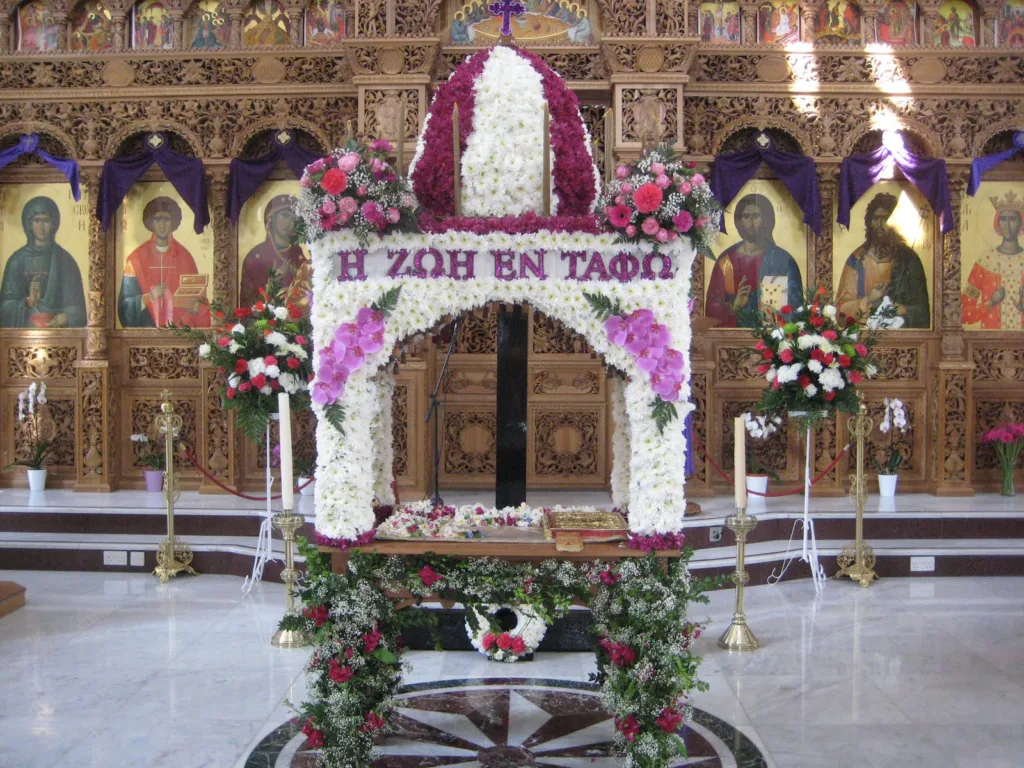
Holy Saturday or the ‘Anastasi’ involves multiple church services, with the most significant one held in the evening. Leading up to midnight, worshippers sing hymns and await for Jesus’ resurrection. As midnight approaches, the church becomes dark and silent, and then lights up with lit candles/ the holy flame as people sing the traditional hymn “Christos Anesti” (Christ is Risen).
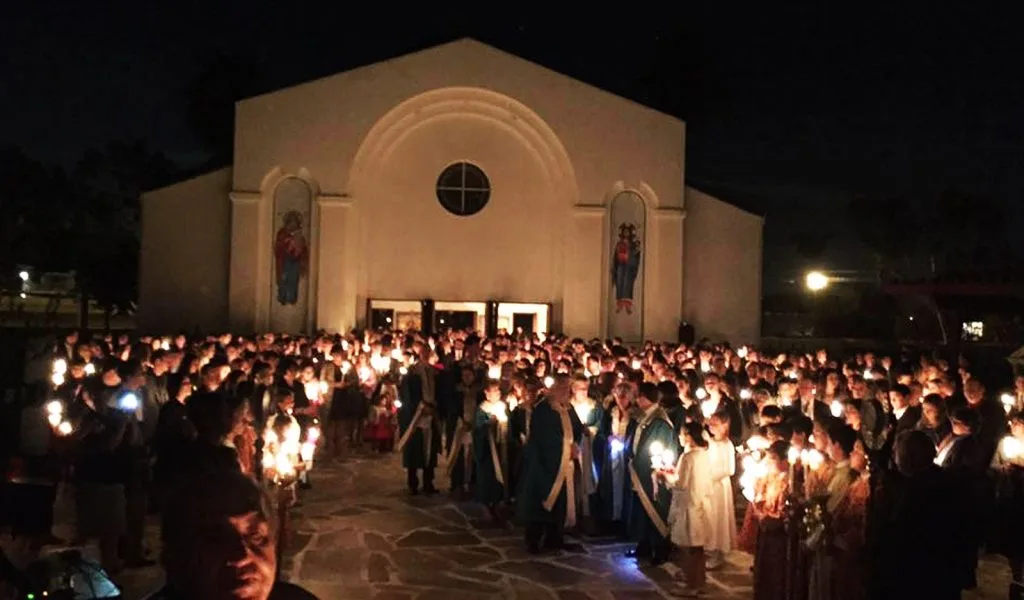
Easter Sunday
Holy Sunday is the day of Easter. It marks the celebration of Christ’s Resurrection, with the Holy Saturday evening service transitioning into Easter. Some churches even hold a morning Divine Liturgy service. Families typically spend the day together, enjoying a feast of food as they break their fast and engage in festive celebrations. Easter is one of the biggest celebrations in the Greek Orthodox faith.
